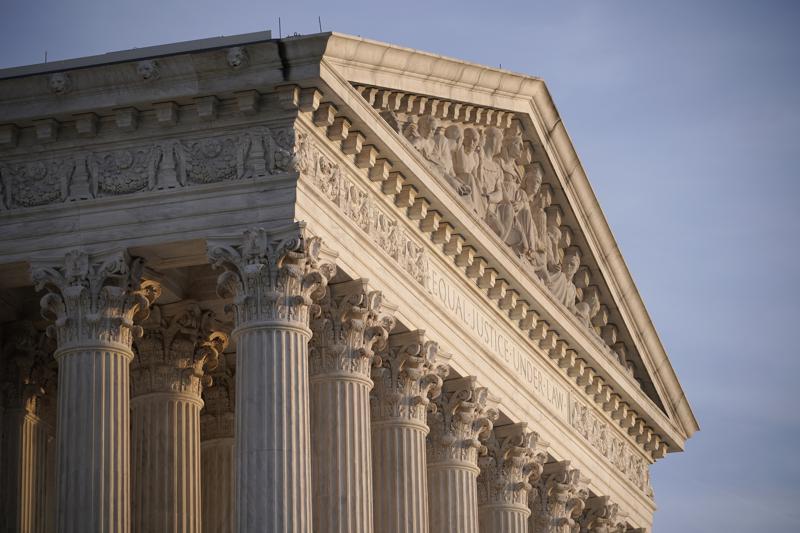Supreme Court rules illegal immigrants who re-entered the US after being deported are NOT entitled to bond hearings and can be detained indefinitely


The Supreme Court ruled Tuesday that the government can indefinitely detain certain immigrants who say they will face persecution or torture if they are deported to their native countries.
Over the dissent of three liberal justices, the court held 6-3 that the immigrants are not entitled to a hearing about whether they should be released while the government evaluates their claims.
Justice Samuel Alito wrote for the court that 'those aliens are not entitled to a bond hearing.'
'Although the statute does not specify a time limit on how long DHS may detain an alien in the post-removal period, this Court has "read an implicit limitation" into the statute "in light of the Constitution’s demands," and has held that an alien may be detained only for ‘a period reasonably necessary to bring about that alien’s removal from the United States"'.
He wrote that it would be reasonable for these immigrants to seek release after six months of being detained.
One man is a citizen of El Salvador who said he was immediately threatened by a gang after being deported from the U.S.
An immigration officer determined that the immigrants had a 'reasonable fear' for their safety if returned to their countries, setting in motion an evaluation process that can take months or years.
The issue for the court was whether the government could hold the immigrants without having an immigration judge weigh in.
The immigrants and the Trump administration, which briefed and argued the case before President Joe Biden's inauguration in January, pointed to different provisions of immigration law to make their respective cases.
Alito, in his opinion for the court, wrote that the administration's argument that the relevant provision does not provide for a bond hearing was more persuasive.
In dissent, Justice Stephen Breyer saw it differently.
'But why would Congress want to deny a bond hearing to individuals who reasonably fear persecution or torture, and who, as a result, face proceedings that may last for many months or years...? I can find no satisfactory answer to this question,' Breyer wrote.
The federal appeals court in Richmond, Virginia, had ruled in the immigrants' favor, but other appellate courts had sided with the government. Tuesday's decision sets a nationwide rule, but one that affects what lawyers for the immigrants called a relatively small subset of noncitizens.
Tags
Who is online
62 visitors

'Although the statute does not specify a time limit on how long DHS may detain an alien in the post-removal period, this Court has "read an implicit limitation" into the statute "in light of the Constitution’s demands," and has held that an alien may be detained only for ‘a period reasonably necessary to bring about that alien’s removal from the United States"'.
That shouldn’t be the case. At some point, the timeliness of justice needs to matter. At some point, it has to become a constitutionally unreasonable denial of due process to make people wait so long for a resolution. That goes for the People of this country as well as the person seeking admission. Those of us already here have various good reasons to be concerned about what happens with these people and we don’t like these cases being held up in legal limbo any more than they do.